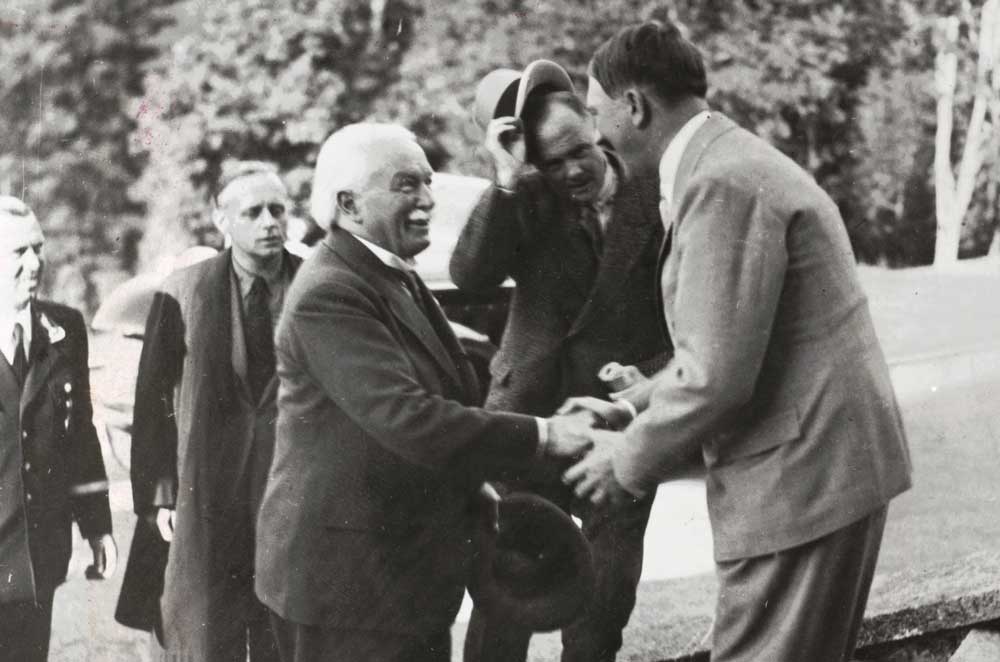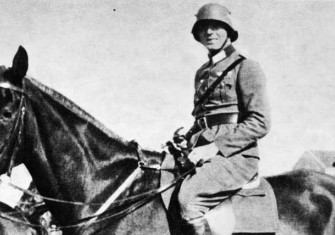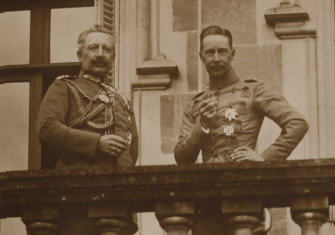Appease Yourself
A new interpretation of the appeasement story.

Like much else, the Russo-Ukrainian war and its build-up have drawn comparisons with the Nazi period. With other historical analogies seemingly lacking, some have cast 1989 and the subsequent collapse of the Soviet Union as the new 1918-19, while for others the 2018 World Cup was Putin’s version of the 1936 Olympics. The history of appeasement also has much to tell us about the present conflict, apparently, with ‘1938’ and ‘Munich’ being held up as blueprints for how not to deal with authoritarian leaders’ territorial ambitions since the 2014 annexation of Crimea. This helps explain the sudden re-emergence of appeasement as a topic of public interest. Tim Bouverie’s bestselling Appeasing Hitler (2019) is an example of how research is feeding this trend. Another is Charles Spicer’s Coffee with Hitler, although in comparison to Bouverie’s more traditional telling, Spicer claims to offer both a new angle and interpretation of the appeasement story.
On the first count, Spicer’s book is a resounding success, retelling the fascinating history of the Anglo-German Fellowship, a cross-border trade organisation patronised by leading industrialists, politicians and royals which served as a forum for informal diplomacy between the two countries. In particular, it focuses on three amateur diplomats, albeit ones with ties to the British government – Philip Conwell-Evans, Ernest Tennant and Malcolm Christie – and how they used the Fellowship to try to improve relations and, later on, to prevent war, with Nazi Germany. They did so by cosying up to Nazi leaders like Joachim von Ribbentrop and Hermann Göring, or arranging exchange trips to the Berlin Olympics, Nuremberg party rallies and football matches at White Hart Lane. There were also attempts to organise more formal summits between Hitler and senior figures in the British government, although the best they managed was a meeting with the retired Lloyd George at Hitler’s mountain retreat, the Berghof.
History has not been kind to the Fellowship because of its association with fascists and appeasers and Spicer tries to salvage his protagonists’ reputations. Still, he does not shy away from telling how they tolerated, even justified, some of Nazism’s early excesses. Improving Anglo-German relations came above all else and so the Nuremberg Laws, for example, were seen as an understandable effort to curb the influence of some sections of the Jewish community. Violence against the Jews, on the other hand, was roundly condemned. By 1938 it convinced Conwell-Evans, Tennant and Christie that their hopes had been misplaced: the Nazis could not be civilised. This coincided with a broader realisation that Hitler’s territorial ambitions went far beyond what Britain should tolerate and that the government would have to take a much firmer stance if European war was to be avoided. From here, the three men set themselves apart from the hardcore appeasers in government, doing everything in their power to convince Neville Chamberlain and others that the Germans could no longer be trusted. They even fostered ties with German resistance circles. We know, of course, that these efforts came to nothing. But Coffee with Hitler reminds us of some of the alternative courses of action available and, chiefly, the amateur diplomats who provided them.
It does not, however, offer a new interpretation of the appeasement story. Spicer’s characterisation of his protagonists’ behaviour as an attempt to ‘civilise’ rather than ‘appease’ the Nazis is, for the most part, a distinction without a difference. Throughout the period up to the Austrian and Sudeten crises, which takes up two thirds of the book, the ‘civilisers’ displayed sympathy for National Socialism and did much to sanitise its image abroad. Some even called for concessions to prevent Germany resorting to force, while others who had earlier tried to ‘civilise’ the Nazis later went on to be become full-blown appeasers. That there was a divergence after the Munich conference is beyond dispute, but there was little to distinguish them beforehand. All sides were united in their effort to prevent war and so the distinction Spicer projects backwards is one of motives, with the ‘civilisers’ nobly trying to bring the Nazis to their senses while the appeasers fecklessly cede to their demands. It’s the classical interpretation of appeasement, albeit from a different angle.
Still, that alone makes this book worth reading. The history of the Anglo-German Fellowship and the amateur diplomats who led it is truly riveting, reading at times like a spy novel. Spicer’s lucid writing is impressive. There are more than a few errors, particularly in its treatment of the Nazi regime, but its use of previously untapped sources makes Coffee with Hitler a valuable addition to a crowded canon.
Coffee with Hitler: The British Amateurs Who Tried to Civilise the Nazis
Charles Spicer
Oneworld 400pp £20
Buy from bookshop.org (affiliate link)
Darren O’Byrne is Research Associate and Affiliated Lecturer in Modern German History at the University of Cambridge.






